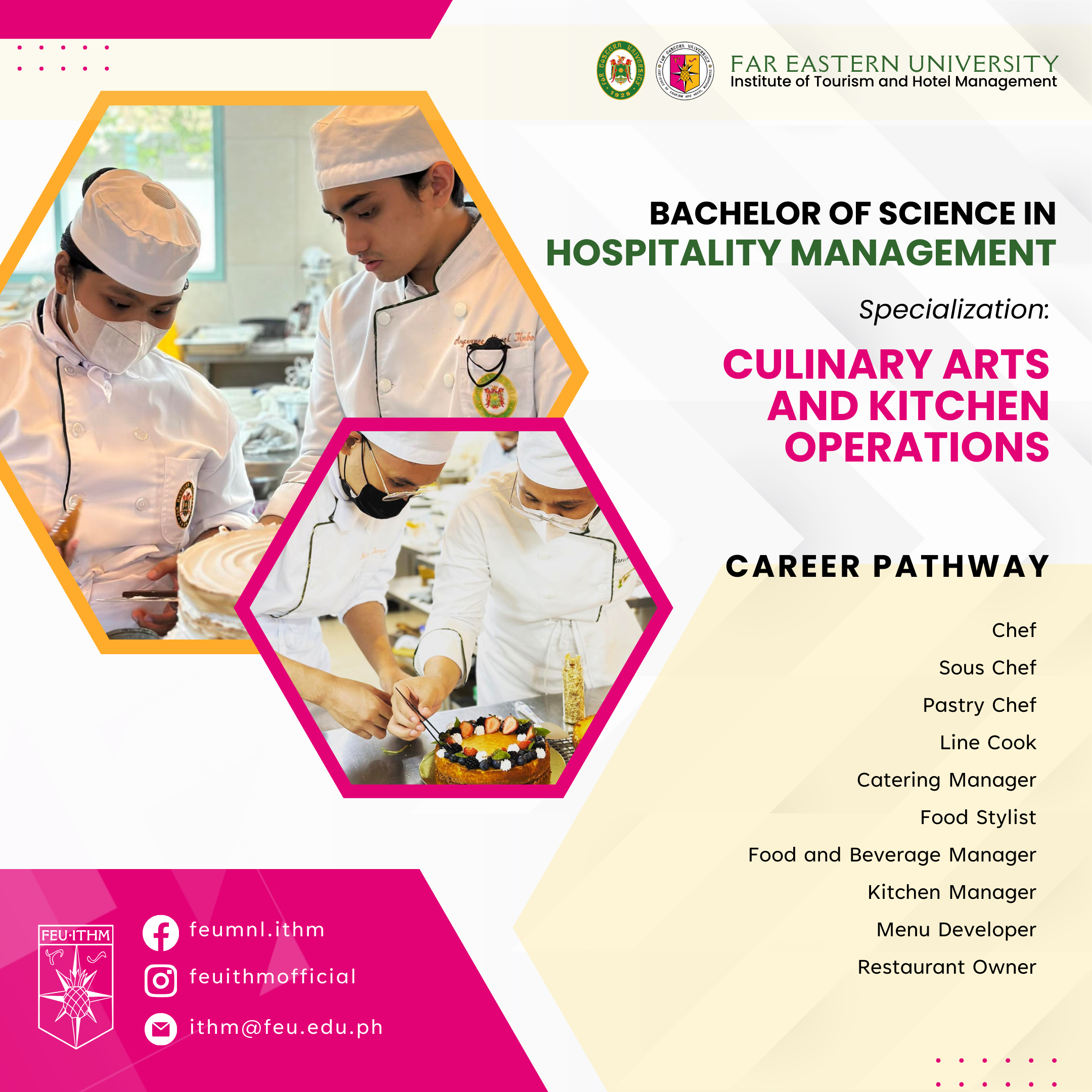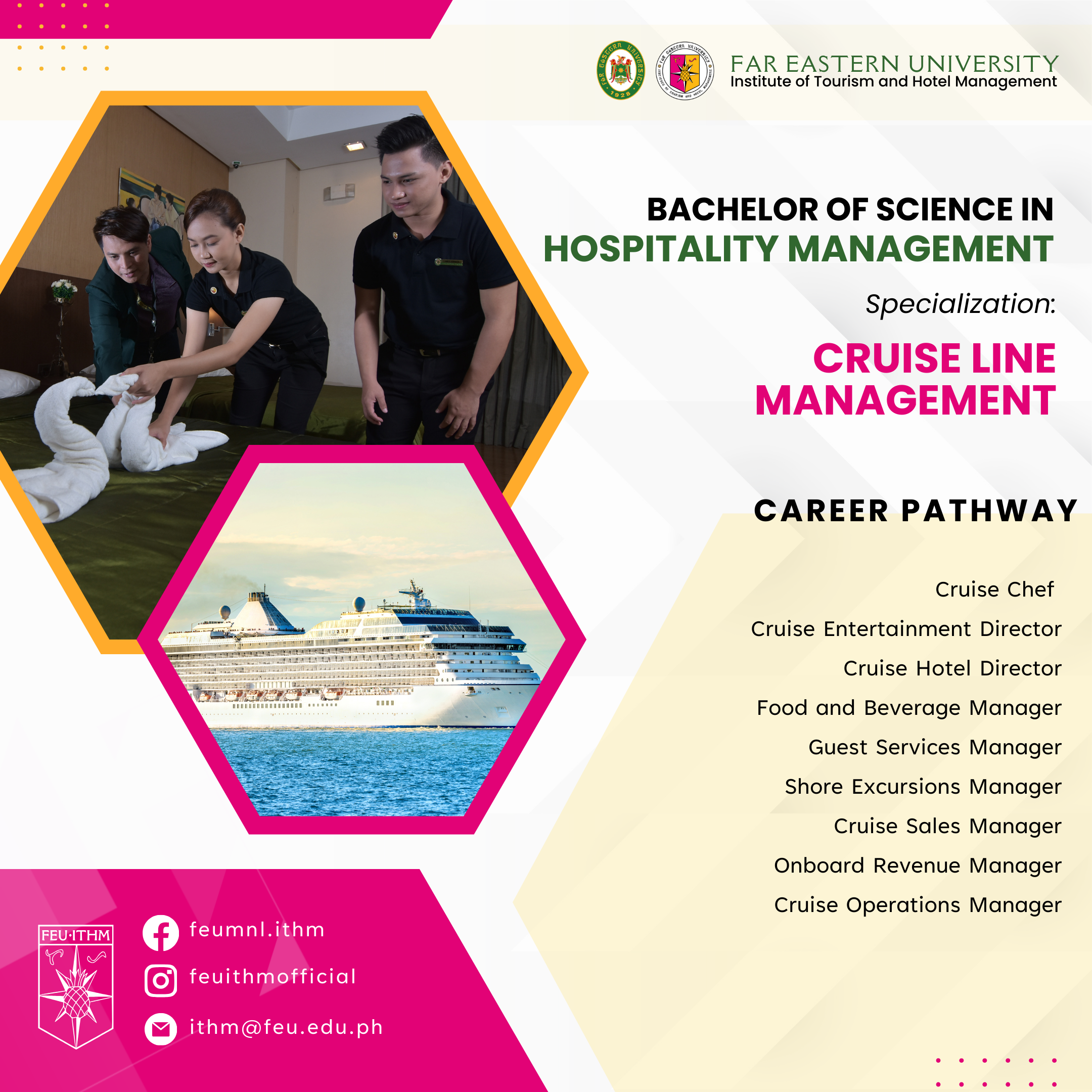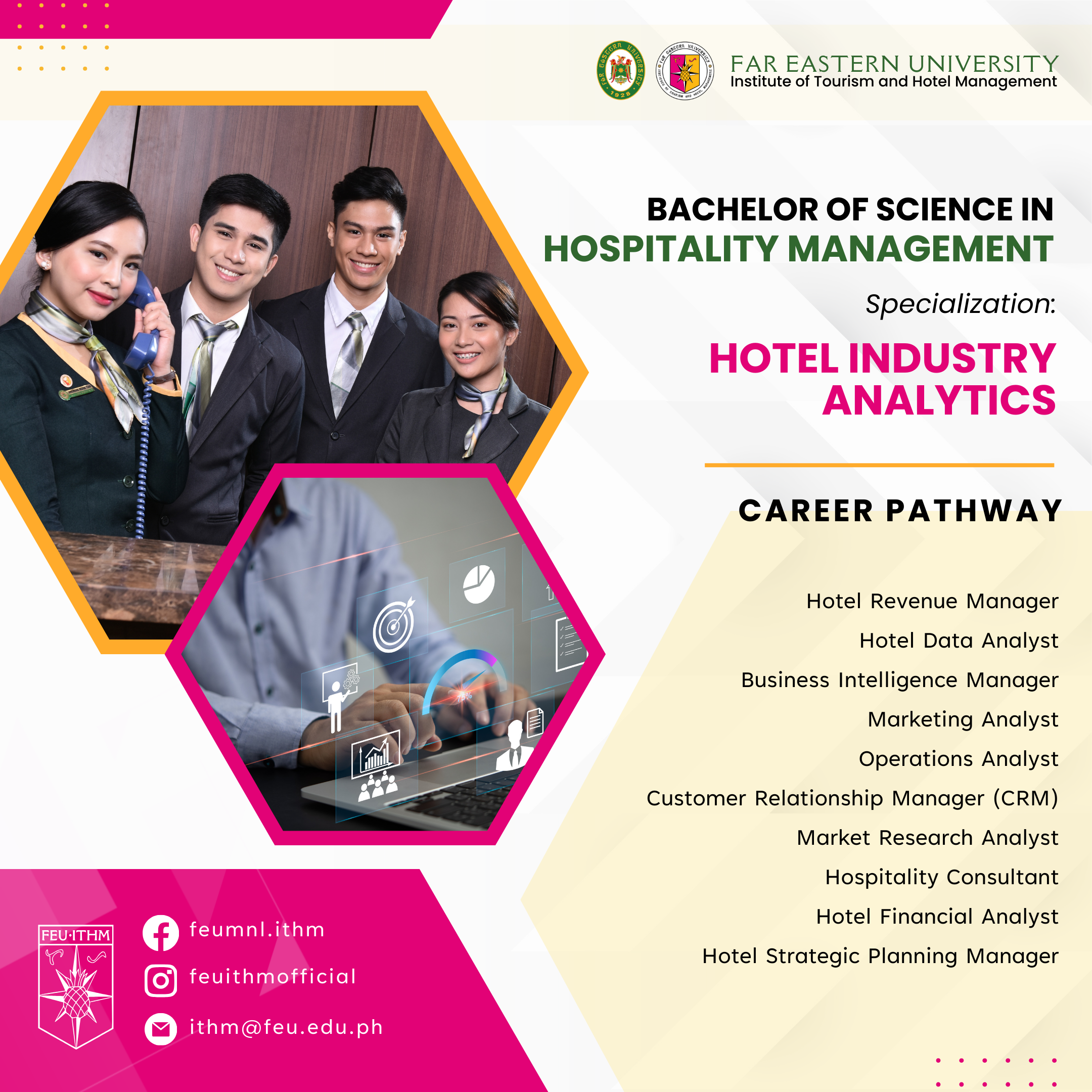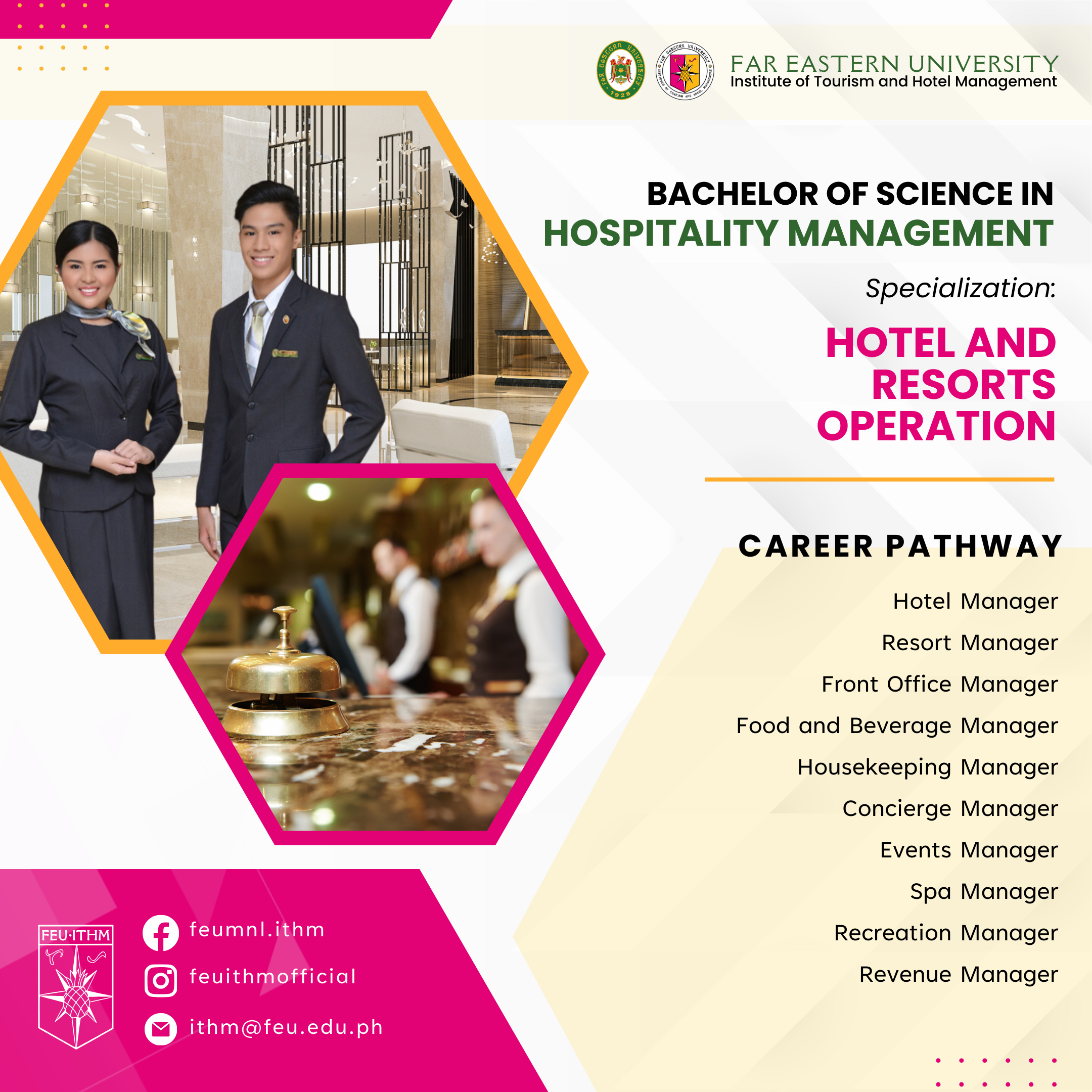

SPECIALIZATIONS
Click to expand
Culinary Arts and Kitchen Operations

Students will receive the following certificates upon completion of three courses, each consisting of three units, to recognize their specialization:
- Certificate in Culinary Management
- Certificate in Restaurant Operations and Service
Description:
The Culinary Arts and Kitchen Operations specialization immerses students in culinary excellence and kitchen management in the hospitality industry. Students develop practical skills in food preparation, menu planning, culinary techniques, and kitchen safety protocols. They also gain insights into flavor profiles, nutrition, and food presentation to meet the diverse preferences of guests. Additionally, students learn about kitchen operations management, including inventory control, cost management, and staffing considerations. This specialization prepares graduates for careers in hotel restaurants, resorts, and other hospitality establishments where culinary expertise is essential for delivering exceptional guest experiences.
Cruise Line Management

Students will receive the following certificates upon completion of three courses, each consisting of three units, to recognize their specialization:
- Certificate in Cruise Line Service Operation
- Certificate in Cruise Line Leadership
Description:
The Cruise Line Management specialization focuses on the unique challenges and dynamics of the cruise industry within the maritime leisure sector. Students explore various aspects of cruise operations, including onboard services, guest experience management, and regulatory compliance. They also examine topics such as cruise tourism law, safety and security protocols, environmental sustainability, and crisis management in the context of cruising. Graduates are prepared for roles in cruise line careers and related sectors where they can contribute to the successful operation and growth of cruise tourism.
Hotel Industry Analytics

Students will receive the following certificates upon completion of three courses, each consisting of three units, to recognize their specialization:
- Certificate in Hospitality Digital Marketing
- Certificate in Hospitality Revenue Management and Industry Analytics
Description:
In the Hotel Industry Analytics specialization, students learn to integrate the strategic use of data and analytics to optimize hotel operations and enhance guest experiences. They learn to collect, analyze, and interpret data related to occupancy rates, revenue performance, customer feedback, and market trends. Students also develop techniques for forecasting demand, pricing optimization, and personalized marketing strategies to drive revenue growth and operational efficiency in hotels. This specialization equips graduates with the analytical skills and business acumen necessary to thrive in roles such as revenue manager, business analyst, or data scientist within the hotel industry.
Hotel and Resorts Operation

Students will receive the following certificates upon completion of three courses, each consisting of three units, to recognize their specialization:
- Certificate in Accommodation and Lodging Service Professional
- Certificate in Hospitality Revenue Management
Description:
The Hotel and Resorts Operations specialization provides students with a comprehensive understanding of the day-to-day management of hotels, resorts, and other accommodation establishments. Students learn about front office operations, housekeeping management, guest services, and facilities maintenance. They also explore topics such as revenue management, sales and marketing strategies, quality assurance, and customer relationship management in the context of hospitality operations. Through hands-on learning experiences and industry internships, students develop the practical skills and managerial competencies required to oversee the successful operation of hotels and resorts in diverse settings.
Bachelor of Science in Hospitality Management is a four-year undergraduate program designed to equip students with the knowledge, skills, and attitude needed to deliver quality service in the hospitality industry. Through a blend of theoretical classes, hands-on practicum, and industry internships, students can specialize in Culinary Arts and Kitchen Operations, Cruise Line Management, Hotel Industry Analytics, or Hotel and Resorts Operation. These specializations prepare graduates for dynamic roles across various sectors of the hospitality and tourism industry—on land and at sea.